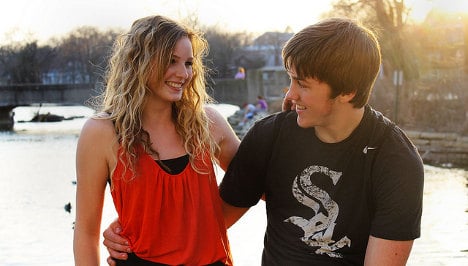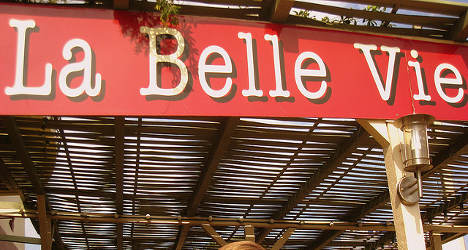The study by the global expat network InterNations looked at expats in 64 countries. Here's what it has to say about foreigners living and working in France.
You came for love
It should come as no surprise that one in four expats moved to France for the most French of reasons — amour. Some 14 percent came because their partner was already here, while another 11 percent came over with their partner.
Meanwhile, 60 percent of France's expats are in a relationship, which is close to the global average.

(Photo: Colourmewonderfulx/Flickr)
You found settling into France really difficult
France's rank is shockingly low when it comes to ease of settling in: it ranks 59th of the 64 countries InterNations looked at.
Perhaps that's because the locals aren't thought to be the most accommodating bunch. Nearly one in three expats in France said the French were “were less than welcoming” to foreigners, against a global average of 16 percent.
On the plus side, 57 percent of people said getting used to French culture wasn't too much of a challenge.
You think leaning the language is crucial
Expats in Singapore or Switzerland may be able to get by on English alone, and never have to look at a dictionary, but the situation in France appears to be very different.
In fact, 76 percent of people said getting by in France without the French language was tough. By contrast, that figure is only 45 percent in neighbouring Switzerland, and it's 52 percent in Germany.
Language was also a key part of their decision-making process for nearly half of all expats moving to France.

You aren't exactly impressed with the French economy…
While you like the lifestyle — expats in France work an average of 37.6 hours a week against a global average of 42 hours a week — you don't think much of France's economy.
Only 48 percent of expats interviewed by InterNations saw the French economy in a positive light. That's well down on the worldwide average of 65 percent.
And even less impressed with your career prospects
“France is probably not the best place for pursuing a career: in the Job & Career subcategory the country ranks 55th. Expats in France are also somewhat more worried about unemployment than the average,” reads the report.
You enjoy the travel opportunities France offers

Expats in France love to travel and many like to take advantage of its place at the heart of Europe, but also the decent transport system, including the highly rated TGV high speed train service.
“A major factor behind the ease of travel is probably the local transportation system, which leaves only 5 percent of the respondents unhappy,” the report says.
But you could do with earning a bit more cash
Around a third (31 percent) of expats in France have an income in the $25,000 (€28,100) to $50,000 a year bracket, some way above the 22 percent global average.
A further 16 percent of people earn from $50,000 to $75,000 — in line with the worldwide average — and close to one in six people take home between $12,000 and $25,000.
At first glance, those figures don't look too bad, but France ranks 55 out of 64 countries for personal finances. That's partly because France is not particularly cheap. For cost of living it comes in at a lowly 41st place.
You are generally happy with education and healthcare
On a positive note, 79 percent of expat parents give France's education system the thumbs up, despite ongoing criticism of schools.
Healthcare also has a high approval rating — 81 percent of people rate this positively. Some 77 percent of expats in France also say health care is generally affordable, against a worldwide average of just 55 percent.

(Photo: Shutterstock)
And you are pretty happy with your life in France
Around three in four expats in France (77 percent) are happy with their life in their new home. To break that down, 11 percent said they were “very satisfied”, 35 percent said they were “satisfied”, and 31 percent said they were “mostly satisfied”.
Only 1 percent said they were “not satisfied at all”.
SEE ALSO: Expat life in France – what's good and what's bad

Do you have things you like or don't like about living in France? Tell us in the comments sections below.





 Please whitelist us to continue reading.
Please whitelist us to continue reading.
Member comments